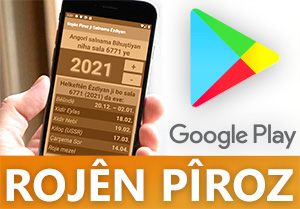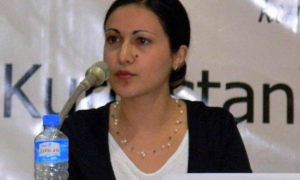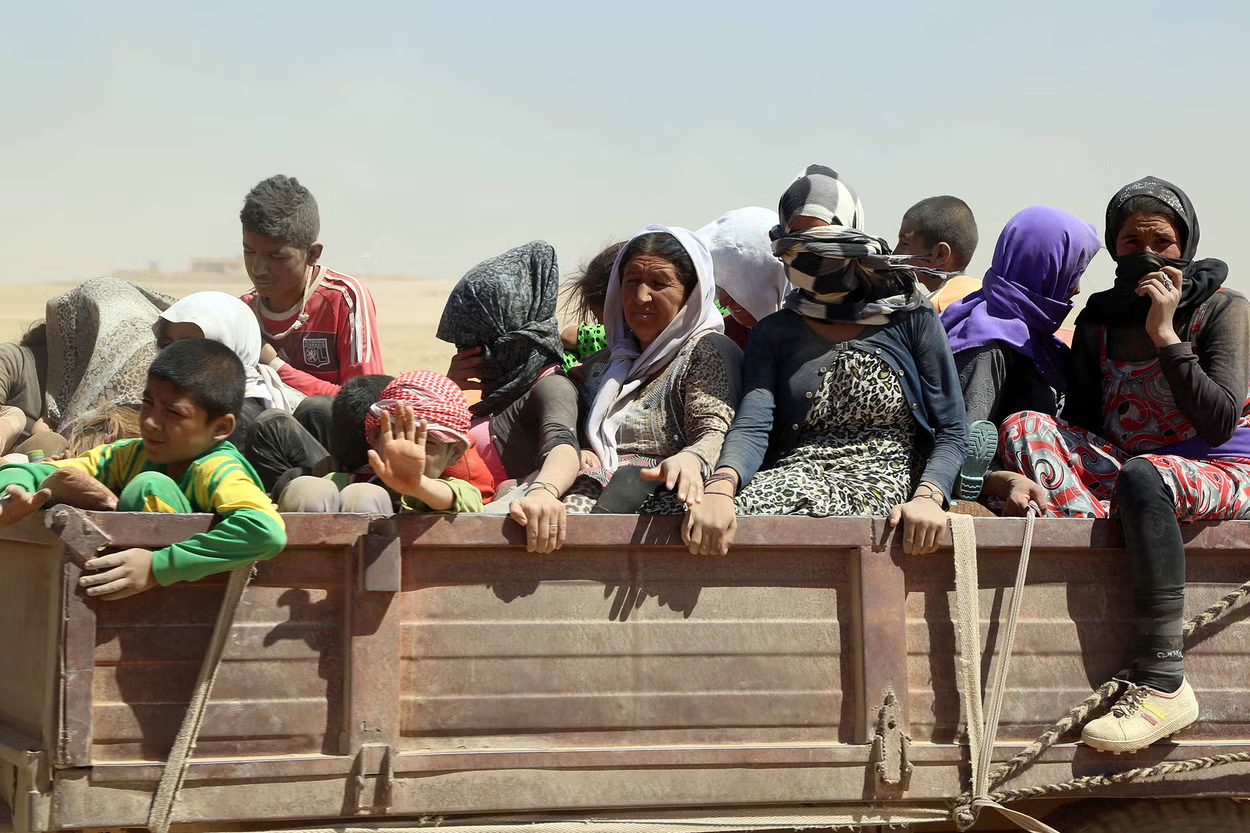THE ADJECTIVE:
Attributive Adj. is used with along with the noun as an epithet or attribute.
—The lazy boy was punished : Kurh ye^ tembel rastya.
Predictive Adj. is used along with verb to be (is, are…etc) and forms part of the predicate.
—The boy is dark=Kurh ye^ thary e
—The boys are dark=Kurh ti thary ne
—The night is black=S,ev ya res, e
—The nights are black=S,ev ti res, in
* Descriptive Adjective:
This is a grammar of the Kurdish language=Eve re^ziman yeka zar ye^ Kurdy’e
Descriptive Adjective, or Adjectives of quality, showing the kind or quality
of the noun.
—Whose pen is this?=Ev kelem e ye^ ke^ ye?
—It is mine= Ye^ min e / Ev kelem e ye^ min e
—What color is this pen?=Ev kelem e ye^ c,i reng e?
—It is red= Ye^ sor e / Ev kelem e ye^ sor e
—The black has come — Ye^ res, ye^ haty
—The girl is beautiful and clever=Kic, ya cuan u zi^rek e
—The tall boy=Kurh ye^ (e^) dire^j
—The tall boys and girls=Kurh u kic, (e^nt) dire^j
* The Exaggerated or Intensive Adjective
Is formed from the descriptive adjective by adding ‘A’ to the
descriptive adjective. ‘PIRH-‘ and ‘KIZ-‘ can serve the same purpose.
—Zan=learner; Zana=Expert
—Giry=cried; Kizgiry=easily cried, tearful
* Adjective of Quality
—Some, few= Hin, hindek, C,end
—Much, many=Gelek, zor
—Very=zor
—Little=Pi^c, Ke^m,
—less=Ke^m
—Enough=Bess, It is enough=Bess e
—All, whole=C,iska, Tev, He^mu, Gij, Gi^s,t
—Wholeness=Gis,ty, Gijty
—Full=Pirh
—Great=Gir, Mezin
—No=Na, Ne, Neu
—Any= Kes, C,u , Tc,u
—Half as a noun=Ni^vye^
—Sufficient=Te^r
I ate some bread = Min hindik nan xuard
He showed much patience=Wy gelek be^hn yeka dire^j dyar kird
You have no sense=Te tc,u demar ne he’e
I very much respect you=Ex gelek te di re^zi^nim
* Adjectives of Number or Numeral Adjectives
they answer the question ‘How many?’
The hand has five fingers= Dest y pe^nc tipil ye^nt heyn
Few cats like cold water=Ke^m kitikan av’a sard di ve^t
I ate some rice= Min hindik birinc xuard
I have enough sugar=Min te^r s,ekir ya hey
All man must die=Hemu^ mirov di vya bi mirin
* Interrogative Adjectives
The following words when used with nouns to ask questions are called
Interrogative Adj. When used alone to stand for nouns they are called
Interrogative pronouns.
—‘C,i’, means ‘what’
What manner of man is Shairko?=C,i mirov e S,e^rko?
—‘C,itu^n’, ‘C,itov’, mean ‘what manner or wht type’
—‘Ky’, ‘Kam’, mean ‘which’
Which way shall we go?=Ky(kam) re^ e em de^ ra c,i^n?
Which girl goes= Ky Kic, di c,it
—‘Kijan’, ‘Kame’, ‘Ki^s,kan’= mean ‘which of’
Which of the way shall we take?=Ki^jan re^an em de^ giri^n?
* Emphasizing Adjectives
‘XUE’ means ‘self, very same, even, own’.
—I saw it with my own eyes=Min ew di^t bi c,av ye^nt xue
Min bi c,av ye^nt xue ew di^t
—Mind your own business=Ser’e^ xue ti is, ‘e^ xue ra ke
—He is his own master=Ew mezin’e^ xue’e
* Exclamatory Adjectives
‘C,i’=what
‘C,itu^n’ , ‘C,itov’=what type of or what manner
—What genius=C,i ecinde e
—What an idea=C,itov hizir e
—What a blessing=C,i hisyan e
* Demostrative Adjectives
Demostrative adjectives point out which person or thing is meant
, so answering the question: Which? They qualify the nouns that
follow. If they are used to stand for or refer to the nouns, then
they become Demostrative Pronouns.
This boy is stronger than Peero = Eq Kurh e bi-he^ztir e li Pi^ro y
This: EV, VY, EVY, VE^, EVE^
These: VAN, EVAN
Such, this way = WEHA, HOTOVE, HOTOV, HOSSA
That = EWY, WY, WE^, EWE^
Those = EW, EWAN, WAN
Such as that = WESSA, WETOV, WETOVE

You must be logged in to post a comment Login
Leave a Reply
Для отправки комментария вам необходимо авторизоваться.









